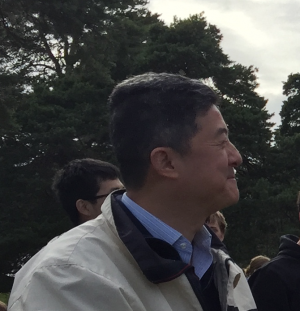In a major report released on August 20, an Australian think tank has sought to establish how the Chinese Communist Party (CCP) uses overseas “talent-recruitment” stations to gain access to technology through covert and nontransparent means. The Australian Strategic Policy Institute (ASPI) report “Hunting the Phoenix” establishes that the CCP has at least 600 stations around the world that identify and recruit scientists and technologists who’d be valuable to China’s quest for technological dominance.
Reuters reported earlier today, that according to state-run Chinese television President Xi Jinping noted that his country will bring in “world class research teams” to push innovation in order to promote economic growth. Since the inception of China’s Thousand Talents Plan in 2008, more than 10,000 overseas scientists (including, though not exclusively, those of Chinese ethnicity) have been invited to work in the country under extremely lucrative terms, according to former U.S. Central Intelligence Agency officer William Hannas.
The ASPI report, authored by analyst Alex Joske, observes that the overseas talent-recruitment stations have a mandate broader than the Thousand Talents Plan. It starkly concludes CCP talent-recruitment programs facilitate “efforts [that] lack transparency; are widely associated with misconduct, intellectual property theft or espionage; contribute to the People’s Liberation Army’s modernisation; and facilitate human rights abuses.” It notes that the talent-recruitment stations are “[o]verseas organisations or individuals contracted by the CCP to carry out talent-recruitment work,” though often supervised by United Front groups – organizations under the Party’s eponymous department tasked with projecting China’s influence abroad and protecting the CCP’s political interests, often through illegal means.
More damningly, the report argues that these stations “[m]ay receive instructions to target individuals with access to particular technologies.” If this sounds a shade too close to economic espionage, that’s because it is. The report notes that “[i]n at least two cases, talent-recruitment stations have been linked to alleged economic espionage.”
The ASPI report comes at a time of growing scrutiny of CCP involvement in cultivating and recruiting scientists and technologists around the world, often through quasi-legal or even downright illegal means. In January this year, the international scientific community was shocked by the news of the arrest of prominent American chemist and head of Harvard’s chemistry and chemical biology department, Charles Lieber. He was accused of making false statements about payments he received from the Thousand Talents Plan. In December 2018, the apparent death by suicide of well-known theoretical physicist, venture capitalist and Stanford professor Zhang Shoucheng shook both the physics community as well as Silicon Valley. Zhang, despite being a naturalized U.S. citizen, had deep business ties with CCP-connected entities. The exact circumstances leading up to his death — which came days after the U.S. Trade Representative Richard Lighthizer released a report on China’s commercial malpractices – remains something of mystery .
While China’s attempt to find creative ways to steal technological-intellectual property has sharply come to focus in public eyes only over the past few years, there is nothing inherently new to the challenge, as most with even a cursory familiarity with the scientific ecosystem in the U.S. will attest. (As early as 2005, when I was a STEM graduate student there, one would hear of this-or-that Chinese researcher’s visa or other legal problems on account of alleged illegal activity.)
It is also well known that China has sponsored lavish research programs and conferences even in areas which have no immediate practical applications – such as string theory. Often, China’s research agenda in these areas have been shaped in America’s campuses. For example, Harvard mathematician and Fields Medalist Yau Shing-Tung has been almost single-handedly responsible for raising China’s mathematical profile. In the recent years, Yau has advocated that Beijing take the lead in building the world’s largest high-energy particle accelerator –a game the U.S. dropped out of decades ago, ceding leadership to the multinational CERN instead which maintains the Large Hadron Collider near Geneva.
While the United States and allied powers contemplate means to both stem Chinese intellectual malpractices as well as maintain their scientific and technological edge, they must also ensure that such efforts go beyond the reactive. A good starting point might be asking why so many scientists are being increasingly drawn to China.

































